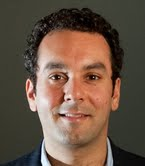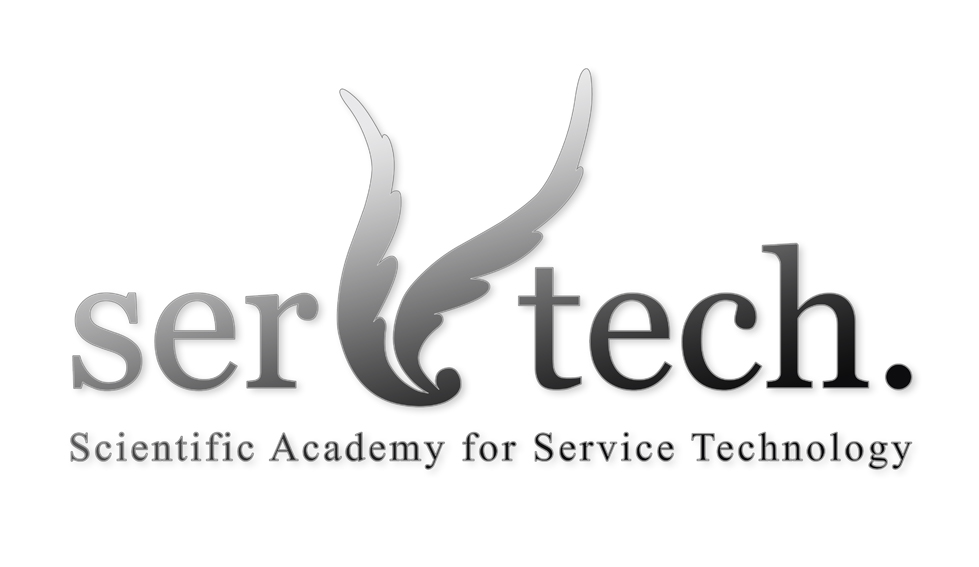Keynote Speakers
Title: Salesforce.com: Success Driven by Innovative Technology
Abstract
What innovative technologies and practices have enabled salesforce.com to become the leading enterprise cloud computing company? Join us to learn more about the salesforce.com social CRM applications and the force.com developer platform. Discover how this platform enables the social enterprise, is available anywhere through mobile devices, and supports open standards and integration. Understand the technical challenges of building applications that scale to support more than half a billion transactions on a typical business day. Explore the multi-tenant infrastructure upon which these are built. We will also describe our agile software development methodology, which has allowed us to deliver multiple major releases per year.
 Paul Constantinides is the Director of the Core Infrastructure development team at salesforce.com, where he has been working since 2004. His teams build the underlying critical subsystems of salesforce.com's cloud computing platform, working on problems of scale, performance, and availability. Prior to salesforce.com Paul implemented systems for building, running, and tuning speech recognition applications at Nuance Communications. Before Nuance, he built voice dialog systems in the Sphinx Speech Group at Carnegie Mellon University. Paul holds B.S. and M.S. degrees in Electrical and Computer Engineering from Carnegie Mellon.
Paul Constantinides is the Director of the Core Infrastructure development team at salesforce.com, where he has been working since 2004. His teams build the underlying critical subsystems of salesforce.com's cloud computing platform, working on problems of scale, performance, and availability. Prior to salesforce.com Paul implemented systems for building, running, and tuning speech recognition applications at Nuance Communications. Before Nuance, he built voice dialog systems in the Sphinx Speech Group at Carnegie Mellon University. Paul holds B.S. and M.S. degrees in Electrical and Computer Engineering from Carnegie Mellon.
 Meir Amiel is the Director of the Sales Cloud development team at salesforce.com. Sales Cloud, salesforce.com's flagship solution, is the world's #1 sales application. Previously, Meir managed various developer and ISV oriented products in the Force.com cloud computing platform. Prior to salesforce.com, Meir held various engineering leadership and product leadership positions at EMC's Information Intelligence Group focusing on enterprise content management and archiving solutions. Meir holds a B.S. degree in Computer Science and Mathematics from Bar-Ilan University and a Master of Business Administration (MBA) degree from Santa Clara University.
Meir Amiel is the Director of the Sales Cloud development team at salesforce.com. Sales Cloud, salesforce.com's flagship solution, is the world's #1 sales application. Previously, Meir managed various developer and ISV oriented products in the Force.com cloud computing platform. Prior to salesforce.com, Meir held various engineering leadership and product leadership positions at EMC's Information Intelligence Group focusing on enterprise content management and archiving solutions. Meir holds a B.S. degree in Computer Science and Mathematics from Bar-Ilan University and a Master of Business Administration (MBA) degree from Santa Clara University.
Title: Enacting Data-Intensive Adaptive Applications over Service-Oriented Infrastructures
Abstract
Many problems at the forefront of science, engineering, medicine, and the social sciences are increasingly complex and interdisciplinary due to the variety of data sources and computational methods available today. Such problems often involve large amounts and diversity of data -- which must be channeled through computational services to yield insights. Such data is increasingly large-scale and distributed; the datasets, their locations, and associated scheduling decisions are time-dependent. Increasingly, such data is also "dynamic" -- i.e. it is dynamically generated through scientific instruments or specialist sensors, and the raw data is often non-persistent. Workflow techniques have been used extensively in scientific applications to aggregate data processing and computational methods -- however, such workflow systems are often limited when dealing with such large-scale, dynamic data.
This talk will identify a number of scientific applications that generate or use dynamic data. Subsequently, resource management strategies that may be adopted in such applications are outlined. Some of these strategies require modifications to the network substrate that connect distributed services, whereas others can be supported within the service management platforms themselves -- all of which may be adopted within a workflow enactment engine. Challenges in achieving this are outlined.
The application survey presented in this talk is based on the 3DPAS Research Theme (funded by the UK National eScience Institute and the National Science Foundation, US).
 Omer Rana is Professor of Performance Engineering at Cardiff School of
Computer Science & Informatics. He was formerly the deputy director
of the Welsh eScience Centre at Cardiff University -- where he had an
opportunity to collaborate with a number of scientists working in computational
science and engineering. He holds a PhD in
"Neural Computing and Parallel Architectures" from Imperial College, London
University in the UK. His research interests are in the areas of high
performance distributed computing, data mining and analysis and multi-agent
systems. Prior to joining Cardiff University he worked as a software
developer with Marshall BioTechnology Limited in London, working on projects
with a number of international biotech companies, such as Merck, Hybaid
and Amersham International. He has been involved in the Distributed
Programming Abstractions and the 3DPAS themes at the UK National eScience
Institute. He is an associated editor of the ACM Transactions on Autonomous
and Adaptive Systems, series co-editor of the book series on "Autonomic Systems"
by Birkhauser publishers, and on the editorial boards of "Concurrency and
Computation: Practice and Experience" (John Wiley) & Journal of Computational
Science (Elsevier).
Omer Rana is Professor of Performance Engineering at Cardiff School of
Computer Science & Informatics. He was formerly the deputy director
of the Welsh eScience Centre at Cardiff University -- where he had an
opportunity to collaborate with a number of scientists working in computational
science and engineering. He holds a PhD in
"Neural Computing and Parallel Architectures" from Imperial College, London
University in the UK. His research interests are in the areas of high
performance distributed computing, data mining and analysis and multi-agent
systems. Prior to joining Cardiff University he worked as a software
developer with Marshall BioTechnology Limited in London, working on projects
with a number of international biotech companies, such as Merck, Hybaid
and Amersham International. He has been involved in the Distributed
Programming Abstractions and the 3DPAS themes at the UK National eScience
Institute. He is an associated editor of the ACM Transactions on Autonomous
and Adaptive Systems, series co-editor of the book series on "Autonomic Systems"
by Birkhauser publishers, and on the editorial boards of "Concurrency and
Computation: Practice and Experience" (John Wiley) & Journal of Computational
Science (Elsevier).
Title: Software Architecture Definition and Cloud Deployment
Abstract
Cloud computing is a promising paradigm for the provisioning of IT services. Cloud computing infrastructures, such as those offered by the RESERVOIR project, aim to facilitate the deployment, management and execution of services across multiple physical locations in a seamless manner. In order for service providers to meet their quality of service objectives, it is important to examine how software architectures can be described to take full advantage of the capabilities introduced by such platforms. When dealing with software systems involving numerous loosely coupled components, architectural constraints need to be made explicit to ensure continuous operation when allocating and migrating services from one host in the Cloud to another. In addition, the need for optimising resources and minimising overprovisioning requires service providers to control the dynamic adjustment of capacity throughout the entire service lifecycle. We discuss the implications for software architecture definitions of distributed applications that are to be deployed on Clouds.
 Wolfgang Emmerich is Professor of Distributed Computing in the
Department of
Computer Science at UCL. His research interest include middleware-based
distributed
systems, service-oriented architectures, and cluster and cloud
computing.
He was a Principal Investigator of the FP VII RESERVOIR project, which
investigated principles of
federated cloud computing. In 2007, Wolfgang was PC Co-Chair of the
Int. Conference on Software Engineering and he currently serves as co-
chair of the Software Engineering in Practice Track at ICSE 2012.
Wolfgang is also co-founder of the Zuhlke Technology Group and CEO of
Zuhlke Engineering Ltd in London. Wolfgang is a Chartered Engineer
and Member of the ACM, IEEE Computer Society and the Institute of
Engineering and Technology.
Wolfgang Emmerich is Professor of Distributed Computing in the
Department of
Computer Science at UCL. His research interest include middleware-based
distributed
systems, service-oriented architectures, and cluster and cloud
computing.
He was a Principal Investigator of the FP VII RESERVOIR project, which
investigated principles of
federated cloud computing. In 2007, Wolfgang was PC Co-Chair of the
Int. Conference on Software Engineering and he currently serves as co-
chair of the Software Engineering in Practice Track at ICSE 2012.
Wolfgang is also co-founder of the Zuhlke Technology Group and CEO of
Zuhlke Engineering Ltd in London. Wolfgang is a Chartered Engineer
and Member of the ACM, IEEE Computer Society and the Institute of
Engineering and Technology.






